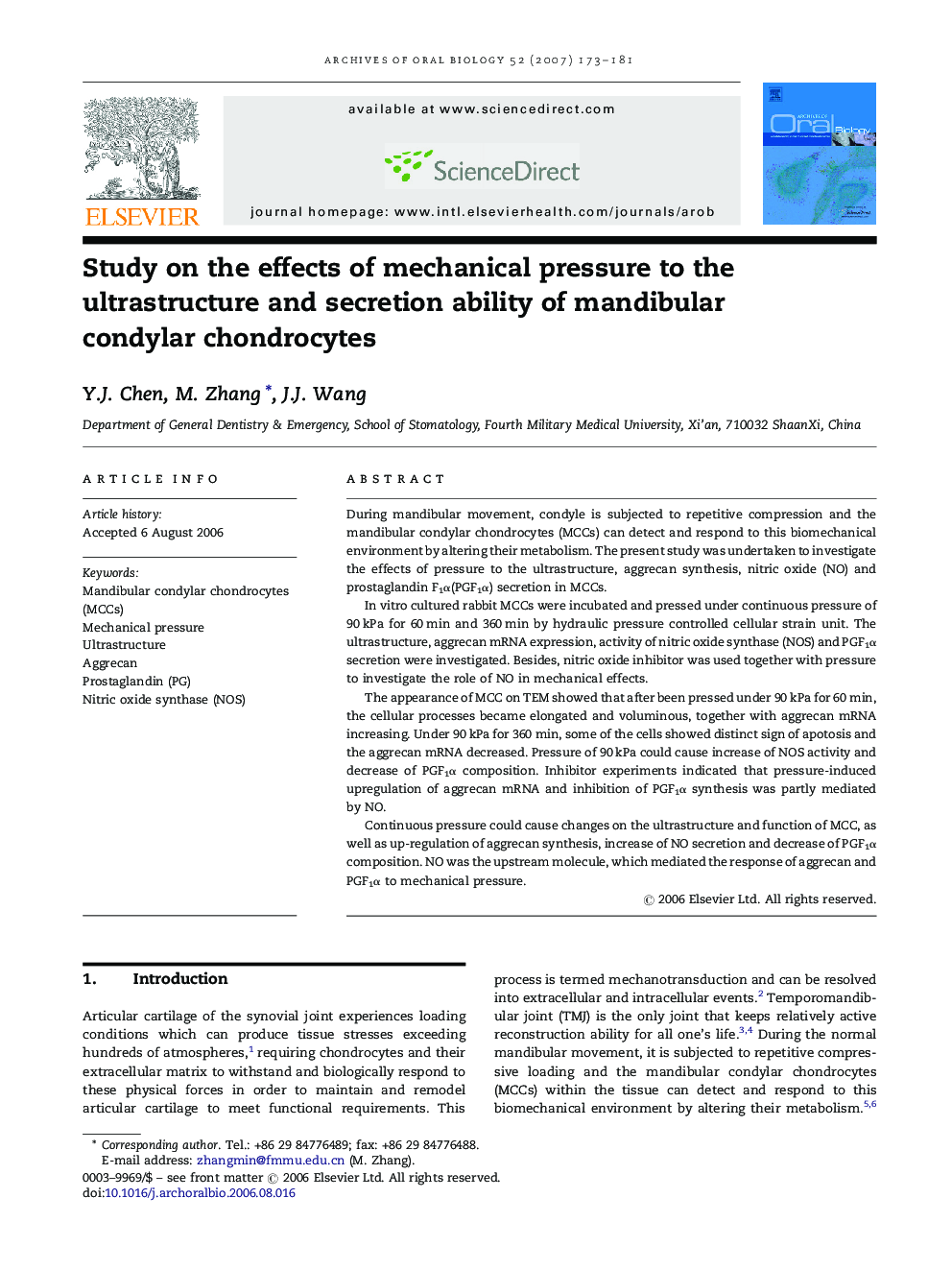| Article ID | Journal | Published Year | Pages | File Type |
|---|---|---|---|---|
| 3121729 | Archives of Oral Biology | 2007 | 9 Pages |
During mandibular movement, condyle is subjected to repetitive compression and the mandibular condylar chondrocytes (MCCs) can detect and respond to this biomechanical environment by altering their metabolism. The present study was undertaken to investigate the effects of pressure to the ultrastructure, aggrecan synthesis, nitric oxide (NO) and prostaglandin F1α(PGF1α) secretion in MCCs.In vitro cultured rabbit MCCs were incubated and pressed under continuous pressure of 90 kPa for 60 min and 360 min by hydraulic pressure controlled cellular strain unit. The ultrastructure, aggrecan mRNA expression, activity of nitric oxide synthase (NOS) and PGF1α secretion were investigated. Besides, nitric oxide inhibitor was used together with pressure to investigate the role of NO in mechanical effects.The appearance of MCC on TEM showed that after been pressed under 90 kPa for 60 min, the cellular processes became elongated and voluminous, together with aggrecan mRNA increasing. Under 90 kPa for 360 min, some of the cells showed distinct sign of apotosis and the aggrecan mRNA decreased. Pressure of 90 kPa could cause increase of NOS activity and decrease of PGF1α composition. Inhibitor experiments indicated that pressure-induced upregulation of aggrecan mRNA and inhibition of PGF1α synthesis was partly mediated by NO.Continuous pressure could cause changes on the ultrastructure and function of MCC, as well as up-regulation of aggrecan synthesis, increase of NO secretion and decrease of PGF1α composition. NO was the upstream molecule, which mediated the response of aggrecan and PGF1α to mechanical pressure.
